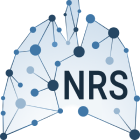β-Blockers are associated with a reduction in COPD exacerbations
Abstract
BACKGROUND:
While some retrospective studies have suggested that β-blocker use in patients with COPD is associated with a reduction in the frequency of acute exacerbations and lower mortality, there is concern that their use in patients with severe COPD on home oxygen may be harmful.
METHODS:
Subjects with Global Initiative for Chronic Obstructive Lung Disease (GOLD) stage 2-4 COPD participating in a prospective follow-up of the COPDGene cohort, a multicentre observational cohort of current and former smokers were recruited. Total and severe exacerbation rates were compared between groups categorised by β-blocker use on longitudinal follow-up using negative binomial regression analyses, after adjustment for demographics, airflow obstruction, %emphysema on CT, respiratory medications, presence of coronary artery disease, congestive heart failure and coronary artery calcification, and after adjustment for propensity to prescribe β-blockers.
RESULTS:
3464 subjects were included. During a median of 2.1 years of follow-up, β-blocker use was associated with a significantly lower rate of total (incidence risk ratio (IRR) 0.73, 95% CI 0.60 to 0.90; p=0.003) and severe exacerbations (IRR 0.67, 95% CI 0.48 to 0.93; p=0.016). In those with GOLD stage 3 and 4 and on home oxygen, use of β-blockers was again associated with a reduction in the rate of total (IRR 0.33, 95% CI 0.19 to 0.58; p<0.001) and severe exacerbations (IRR 0.35, 95% CI 0.16 to 0.76; p=0.008). Exacerbation reduction was greatest in GOLD stage B. There was no difference in all-cause mortality with β-blocker use.
CONCLUSIONS:
β-Blockers are associated with a significant reduction in COPD exacerbations regardless of severity of airflow obstruction. The findings of this study should be tested in a randomised, placebo-controlled trial.
TRIAL REGISTRATION NUMBER:
(ClinicalTrials.gov NCT00608764).

